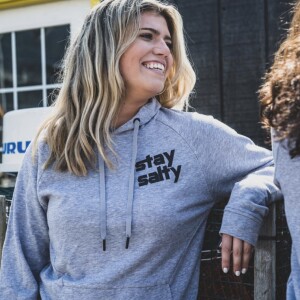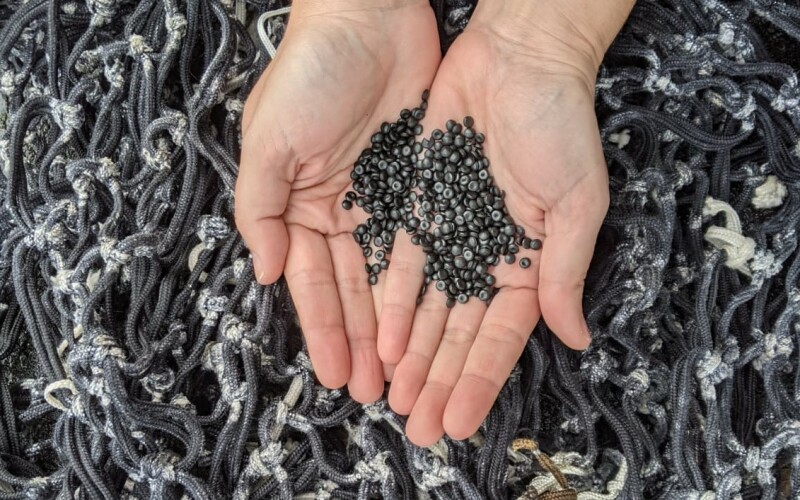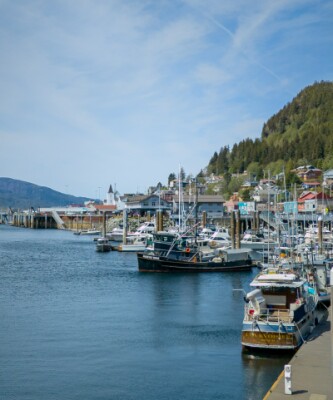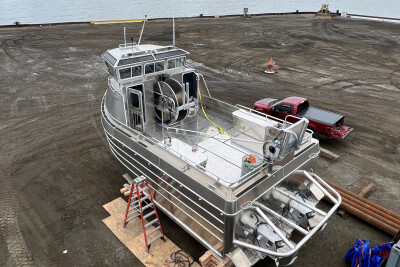I had the pleasure of speaking with Nicole Baker, founder of Net Your Problem, a company that recycles end-of-life fishing gear. As a former North Pacific groundfish fisheries observer from 2010 to 2015, Nicole has felt tied to the commercial fishing industry and found herself looking for ways to make the industry greener. During her time as an observer in Dutch Harbor, she became interested in ways of recycling the many worn out fishing nets she came across.
She was first inspired by a nonprofit organization that had collected nets from and illegal fishing operation. Shortly after, that nonprofit began a concept of making shoes with the material. At the time, Nicole had a realization that this netting was made from plastics, and at the end of all net’s lives, landfills were the final destination. She knew where there were just heaps of netting that were no longer useable by fishermen.
This was when the concept for Net Your Problem came to life.
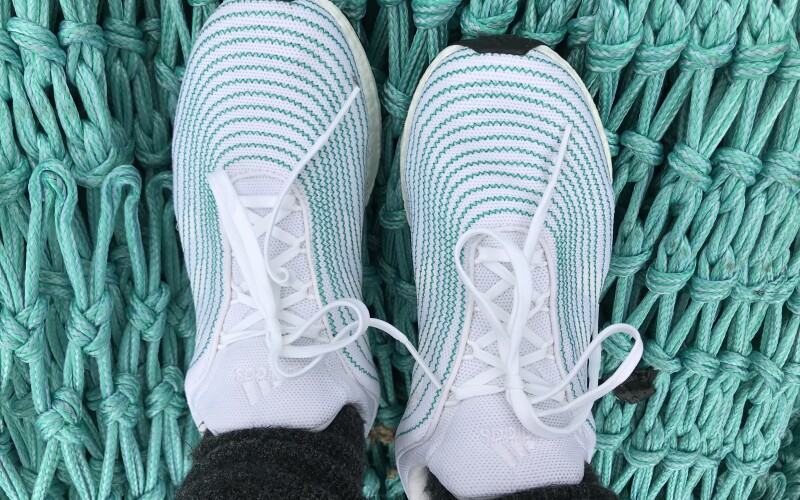
Though NYP began in Dutch Harbor, Alaska, Nicole has spread her business to coasts across the country. NOAA Fisheries shares a list of top ports by landings each year, and Nicole used it to her advantage to look at cities with some of the biggest fishing activity. This provided her the direction to plan where the recycling was most needed.
“We are using the order by landings as our to-do list. Where there is a lot of fishing activity, there is likely to be a lot of fishing gear waste.” Nicole shares.
Currently, NYP is in Washington, California, Alaska, Maine, and Massachusetts, but working on growing in southeastern states such as Louisiana and Florida. I was able to meet Caitlin (Caity) Townsend, the Massachusetts Representative for NYP, at this year’s Maine Fishermen’s Forum. We talked about NYP’s mission and the impact that they've created within sustainability on our oceans. With organizaiton like this we can continue to support the stewards of the sea-fishermen.
Caity and I share the same generational fishing roots, and both hold the same passion for fisheries and doing what we can to preserve this way of life. What better way to preserve our seas than make an economically viable pathway to recycle end of life fishing gear?
Net Your Problem is moving in the direction of being a leader in contributing to the circular economy and reducing the energy use of manufacturing with plastic. Through their website you can find links to get your singular fishing vessel or fleet involved in their recycling program. There are also links for governmental agencies and net and gear manufacturers as well as outreach organizations and brands who want to become more sustainable.
Nicole shared with me the difficulty of trying to put into words the significance that NYP has had on these numerous fishing ports around the US, however, they have collected nearly 1.25 million pounds of gear.
“I just have this mental ticker in my brain where I just want to see us grow and keep going onward and upward. The significance that just a singular vessel has for our growth is an indicator of the need for something like NYP.” Nicole shares.
“The other day, we collected 30,000 pounds from just one boat in Kodiak.”
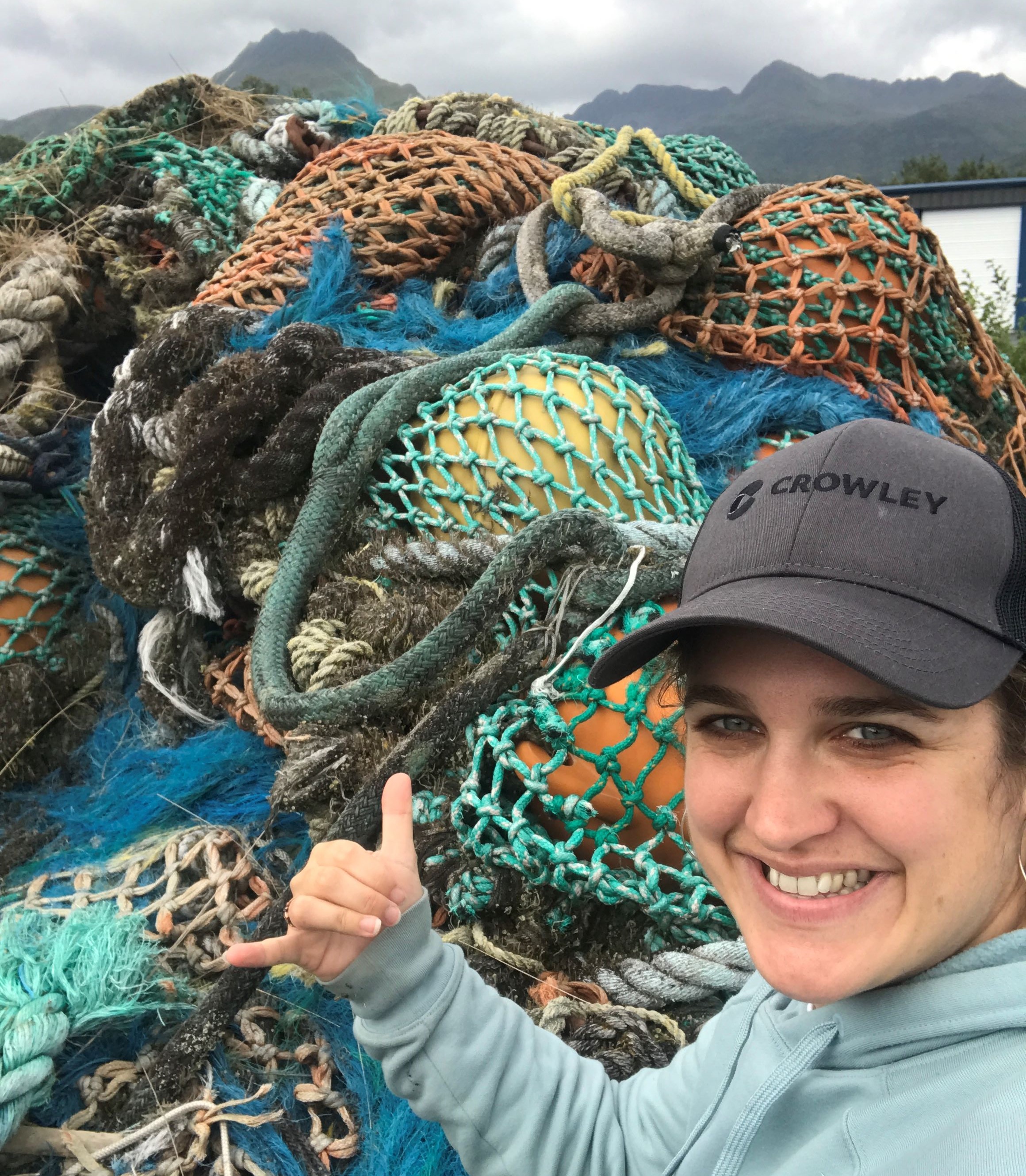
Nicole explained that in some places, although the weight may not be that heavy, the impact is pretty substantial. Each shackle on a Bristol Bay gillnet weighs about fifteen pounds. So, to collect 24,000 pounds, it means they would collect 1,600 individual shackles.
"By just using the total weight, it's hard to gage the impact, but overall it feels like we have made significant progress."
The main resources that Nicole and the team are looking for are warehouses near all the fishing ports they do collections in. She explained that they have one currently in Seattle, and that they subcontract gear storage in Alaska, however, they don’t own the storage space.
In New Bedford, MA, they have a warehouse that accepts gear drop offs, as well as a rope depot in Freeport, ME for the same transactions. The initial goal is to have NYP warehouses in all ports for fishermen to drop gear off once it has run its course. Most of the time, the unit that they work from is a 40-foot shipping container because of the need for efficient transportation. The recyclers that are used are based in British Columbia, Portugal, and Denmark. The NYP team keeps everything in warehouses until they have enough to load a container to head overseas.
Nicole wholesomely shares that the team is collaborative, and she is grateful to have people that are just as passionate about the fishing industry. “My friend says it’s like we work on a short dock, ya know? Just always swimming in the same schools and running into the same people. This industry ties you in.” Nicole says with a smirk.
“I’m not the first person to have thought about this idea.”
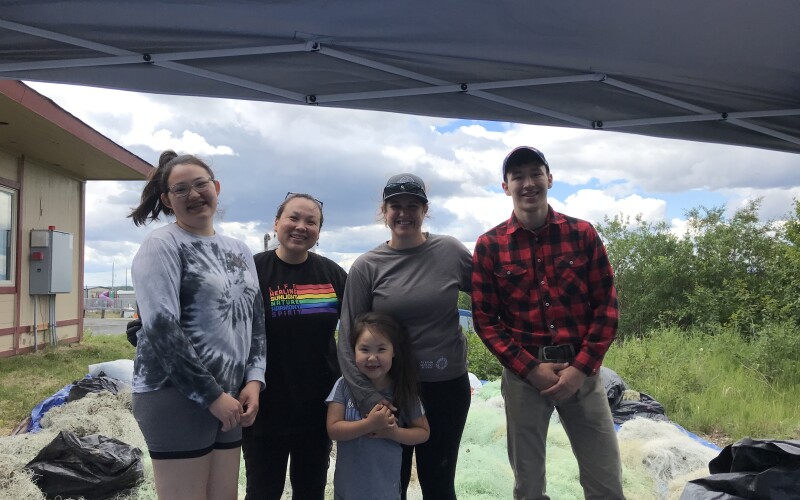
Not only does NYP run their own collection programs, but they help other groups that have previously collected nets find new places to send them. The Curyung Tribe of Dillingham has been doing this type of cleanup effort for more than a decade. The Copper River Watershed Project in Cordova has also been collecting nets for some time before NYP came along. Both cleanup groups explained to Nicole that years ago China refused to take recyclable materials, so when Nicole became involved, all three groups started working with each other to find other options on where to send the netting. Nicole shares, “These are two partners of ours that are actually out in the communities, talking with fishermen, collecting the gear, sorting it, cleaning it, and literally going through the recycling process right then and there.”
The Net Your Problem team gets to collaborate with partners that have not only been doing this for years but are able to help support them through the gear storage and warehouses that they use on the Westcoast and Alaska.
Nicole shared with me the other partners involved that helped fund the first year of the Bristol Bay program of NYP- Grundens has been a huge supporter of their work, Bristol Bay Economic Development Corporation, Seattle Marine, LFS, Trident, and Leader Creek. All of which, fully supported the collection of end-of-life gear and presented a multistakeholder group that are for the success of our fisheries and sustainability.
The next step for Net Your Problem is not only finding the warehouse resources needed to store more material as they grow, but find recycling companies in the United States to get the recycled plastic into supply chains. Though the team is only the first step in the recycling process by collecting the material, Nicole is hopeful to further find local resources to take the plastic and turn it into bead material. The next step following the beads would be to find an injection molding company that can use the raw material to make a new product.
Though NYP doesn’t manufacture from the material they have collected, they have helped support manufacturing of crab and clam gauges and other products. “It’s helpful to showcase what can happen at the end of the recycling process. We can show you photos of the collections we do all day long, but until you can see the result of what can be made with the recycled material, it’s hard to see the big picture.” Nicole shares.
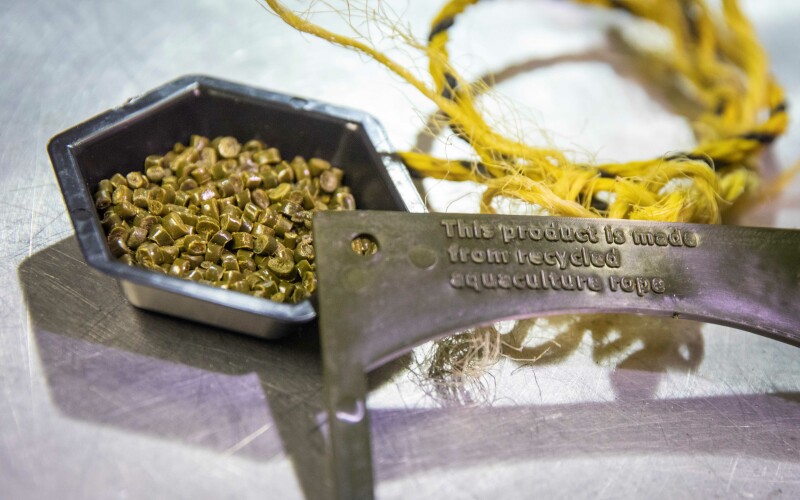
“People are disenchanted by recycling. Just with the whole idea in general, you see on the news that 9% of plastic is recycled. So, people are like why should I bother rinsing this shit? It’s important to show those people that this is something that can actually work.”
The NYP team have met numerous companies that sell recyclable plastic products, as well as end of life gear products such as Waterhaul and Rugged Seas. Waterhaul manufactures a knife made from recycled gillnets, and Nicole and the team collaborated with them to put the Net Your Problem name on one side of the knife. The team has handed them out to fishermen and industry members at tradeshows to showcase the end product.
Nicole shares, “Just because we don’t have a collection program where you might fish doesn’t mean we aren’t thinking about it.” She advises those to reach out to the closest NYP representative to your area. Instead of sending your worn gear to an incinerator, the team hopes word of NYP gets out far enough for fishermen to turn to them to get rid of end of life equipment that can’t function on the boat further.




